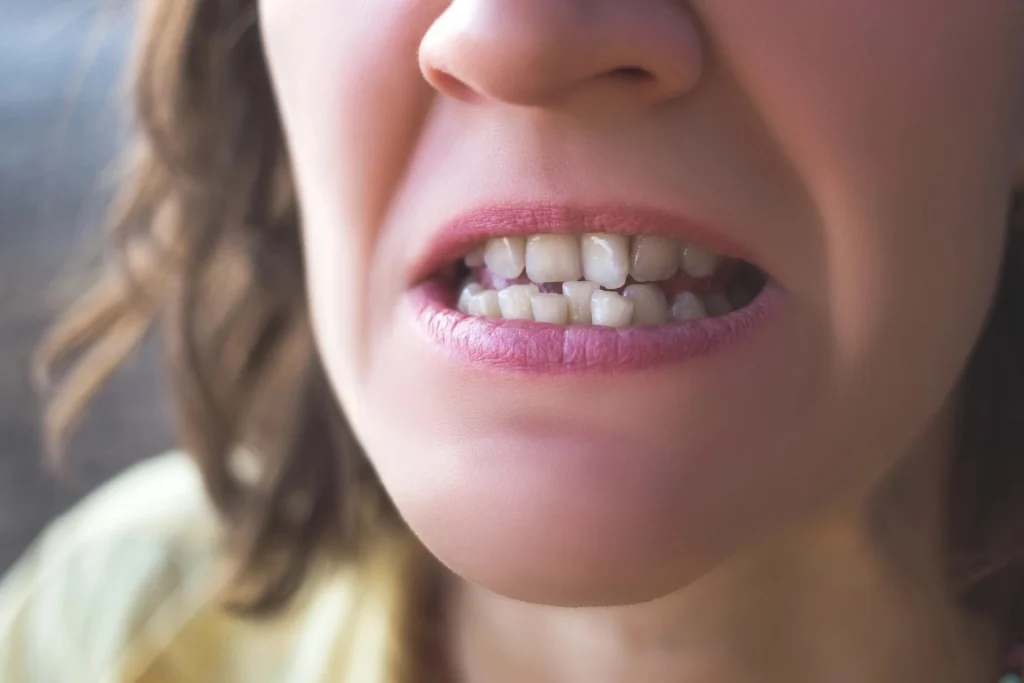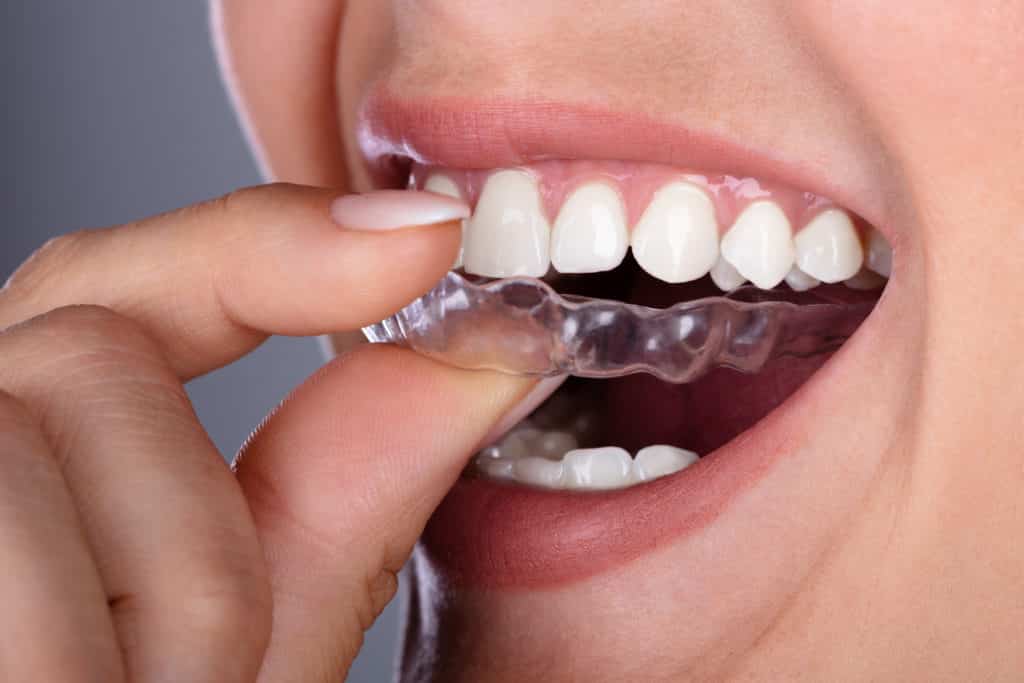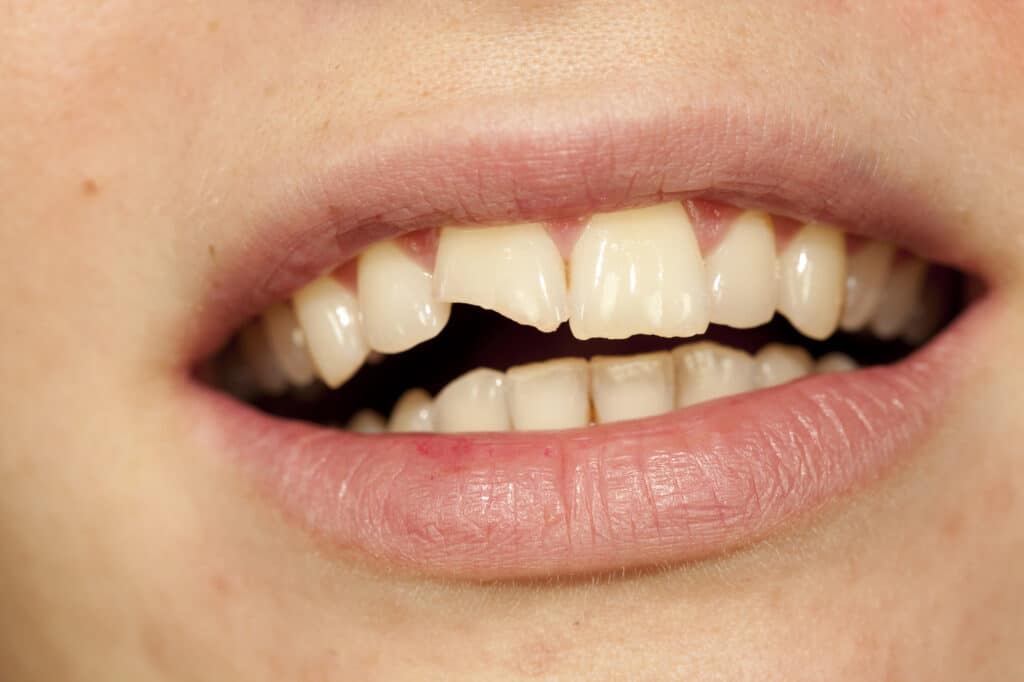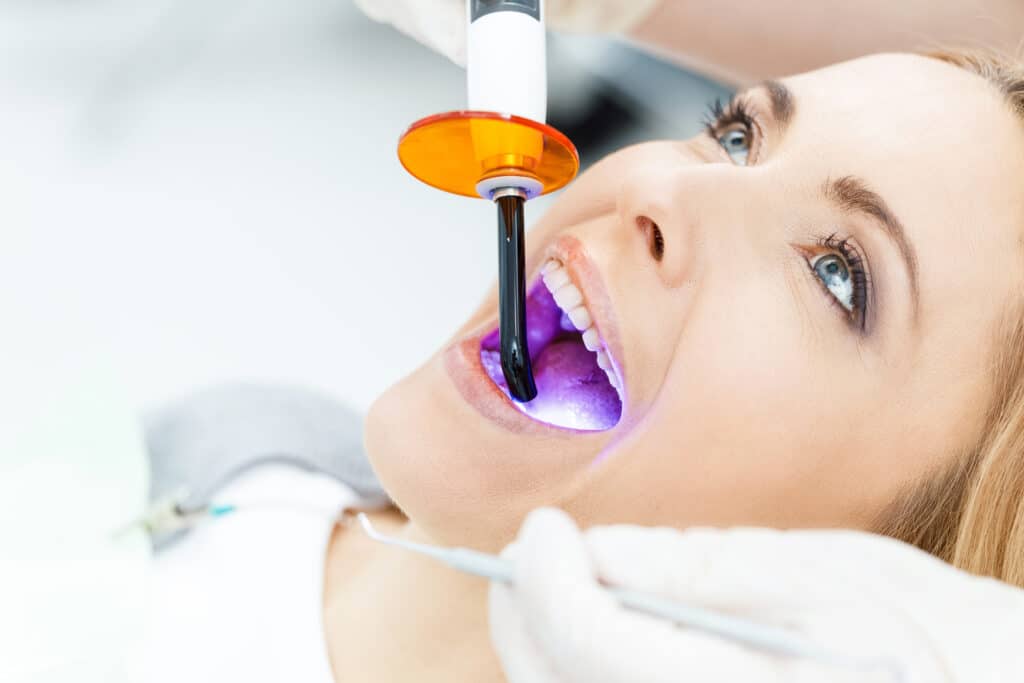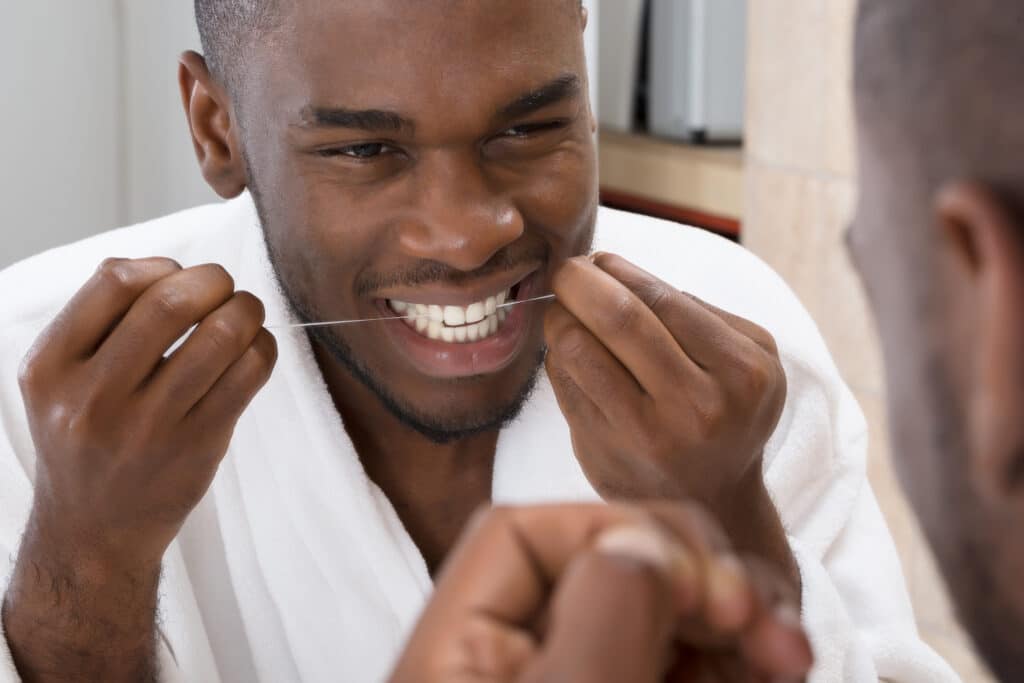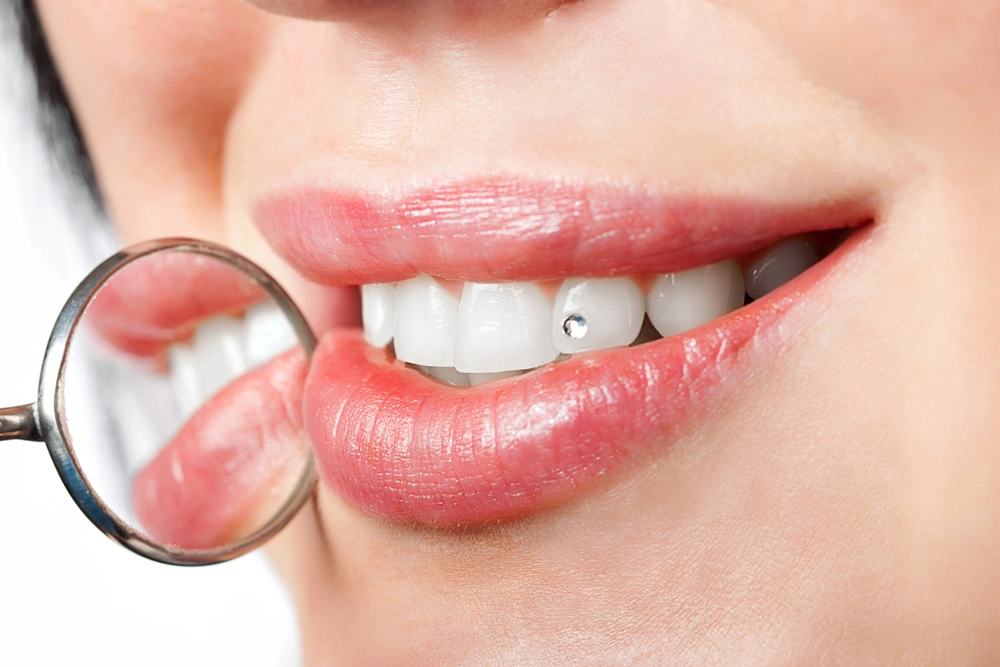
Recently, you may have seen your favorite celebrities and influencers sporting tooth gems, which are small crystals or jewelry that are bonded to the teeth. While there’s no doubt that this trend is a surefire way to make your smile sparkle, it may not be as harmless as it seems.
If you’re considering ways to achieve a more eye-catching smile, keep reading to learn more about tooth gems, their potential risks, the importance of professional application, and some alternatives to consider.
What Are Tooth Gems and Why Are People Getting Them?
First, let’s go over what tooth gems are and why they’re appealing. They consist of small crystals, gold, or diamonds that are adhered to the teeth, typically with a semi-permanent adhesive.
When you have a tooth gem professionally done, it’s a similar process to installing the brackets for braces. They can stay on for months or even years, depending on the type of adhesive used, the placement, and your habits.
While the concept of adding jewelry to your teeth may seem strange to some people, others see it as a way to express themselves. Celebrity influence has a lot to do with its appeal, as well, making tooth gems seem like a glamorous way to improve your appearance. Plus, since they’re temporary, they’re perceived as a low-risk body modification, especially compared to piercings or tattoos.
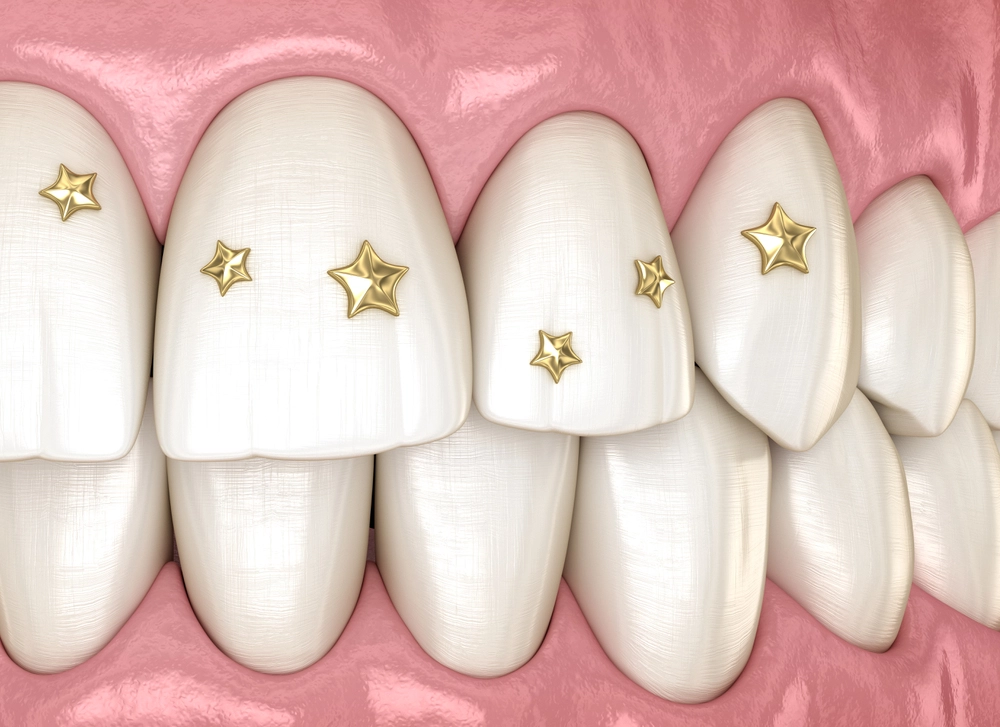
The Potential Risks of Tooth Gems
However, despite their impermanence, tooth gems come with some potential risks. Most dentists don’t recommend them due to the potential for damage. Even with professional application, this trend isn’t 100 percent safe.
The potential risks of tooth gems include:
- Enamel damage: There’s a chance your tooth enamel could erode or weaken, especially with improper application or removal.
- Tooth decay: Depending on the gem’s size and placement, plaque and bacteria can build up around the gem. Plus, it can cause difficulties with brushing and flossing, making it harder to remove this buildup.
- Gum irritation: Plaque and bacteria can cause gum irritation, contributing to gum disease. Plus, if gems are placed too close to the gumline, it can cause inflammation.
- Choking hazard: If the gem dislodges, it can be swallowed or inhaled. A lot of the time, the gems are too small to harm your digestive system; however, accidental inhalation can be a serious emergency.
- Allergic reactions or sensitivities: You may be sensitive or allergic to the adhesives or materials used, especially if you opt for DIY or low-budget options.
Professional Application vs. DIY Kits
As long as you have your tooth gem properly applied by a dental professional and maintain good oral hygiene habits, the risks are relatively small. However, those risks increase exponentially when you do it yourself.
One of the biggest risks is improper preparation. If you apply a gem to a tooth that hasn’t been properly cleaned and prepared, you could trap bacteria underneath, leading to tooth decay. Non-sterile tools can also lead to infection,
There’s also no way to know for sure what materials these DIY kits contain. Either the gem or the adhesive could contain toxins that may put your health at risk. Plus, low-quality metals can tarnish or rust over time or even cause allergic reactions.
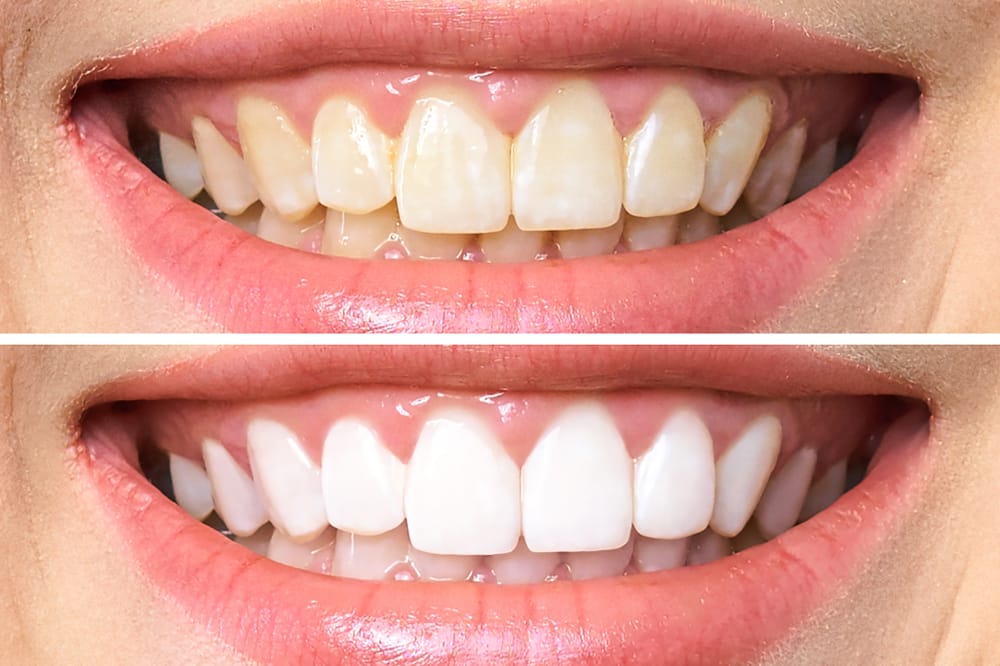
Alternatives to Tooth Gems
If you want a way to improve your smile’s aesthetics, there are better ways to do it. At VIP Smiles, we offer a wide range of safe cosmetic dentistry options that can help you achieve that beautiful, eye-catching look you’ve always wanted.
Professional whitening, veneers, and bonding are all excellent ways to address imperfections like discoloration, misshapenness, or minor damage. These options will refresh your smile — and your confidence — without the risks that come with tooth gems. Plus, the results often last much longer, making them a smarter investment.
Expert Cosmetic Dentistry by VIP Smiles
At VIP Smiles, we understand that your smile isn’t just functional — it’s a key part of your appearance, allowing you to express your personality. If you have questions about tooth gems or other cosmetic dentistry procedures, don’t hesitate to reach out and speak with a member of our team. Our goal is to give you all the information you need to make informed decisions about your oral health.
Contact us today to schedule an appointment and learn more about how we can help you achieve the bright, beautiful smile you’ve always dreamed of.

